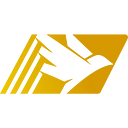Finding Your Unique Value in Agile Teams
Rediscover Your Agile Identity in an Evolving Landscape
Obsolete Identity
As agile manifesto was published in 2001, there are many contemporary agile methodologies proposed to help a team be able to adapt themselves to variable markets, such as Scrum, Kanban, XP, RUP, etc. Because the idea of agility was initially proposed by a group of software engineers, the related engineering best practices occupies the most of our vision. Nobody would predict the surrounding concepts are also applied in other fields, like project management, design, manufacturing, and so forth.
However, that also shuffles the lines between different roles already defined in agile methodologies, which causes many people to judge if a company knows who they are hiring. For example, I saw many scrum trainers were criticizing many companies have no basic ideas regarding what a scrum master is, and seemed to hire a project manager.
Also, in some organizations, engineering managers also played the role of a scrum master or a product owner. Of course I had once criticized the strange phenomenon since I thought it should be an organization’s accountability to know who they are actually hiring, and what kinds of problems they would like the role to solve.
As time goes by, I came to understand that everything that exists must be reasonable. Therefore I started thinking about how to identify our values in an agile team without being limited by specific roles, and try to find our unique position. For example, in my country “Agile” is not a popular term so I cannot expect anyone to understand what it is. But it did open my vision toward another business application of agile methodologies, such as applying iterative and incremental approach to improving deliverables, changing our mindset to be flexible to external stimulus, etc.
I came to understand what I should do is applying the core logics hidden behind the agile methodologies instead of being restricted by their patterns or roles. That is the reason why I become a project manager who knows how to coach a team as well as manage projects based on agile skills. In this article, I’d like to share my ideas leading you to think about the necessity of your roles. No standard answers, but moderate ones.
Back to The Origin of Agile
In my opinion, we should back to the original definition of “Agile”.
What is Agile?
I think this might be the hardest problem I’ve ever heard, because when people heard the term, they come up with some nouns like Scrum, Kanban, TDD, etc., and cannot clearly describe what it is, even if they would declare doing Agile.
“Agile” reflects an individual or a group of people is flexibly adapted to external signals, and take corresponding actions to forward the goals. Well, maybe some readers might be unsatisfied with my explanation but that is really my understanding to it. To be honest, I even don’t want to create an explanation because it’s a status quo that you can experience but cannot depict it transparently.
To achieve the explanation, there are many best practices created to fit the core value, and I would highly emphasize individuals and interactions over processes and tools. The reason is that we people cannot master all the things but we could collaborate to achieve a common goal, so how to enable the autonomy of team gets important in the modern era.
To help the team explore any opportunities, we apply the iterative and incremental approach to inspecting and adapting our actions to market feedback. And this core technique has derived into various best practices that are demonstrated in different forms. Therefore I usually don’t restrict myself to some patterns but clarify the backgrounds as they were created. And only extract usable parts that really aid me.
How to Define Personal Values & Roles?
I’ve addressed the problem of obsolete identities and the fundamental agile values. So how to discover our own values if we don’t follow the roles already defined in many agile guides? As I just mentioned, people are debating the precise borders between different roles.
However, in business contexts, often we cannot clearly indicate these since if we wanna unify individuals to contribute to some objectives, we need collaboration and compassion to understand what should be provided to achieve goals, instead of completing your own tasks.
Therefore, I’d like you to jump out of the agile box, and think about the real values you could provide to your team, rather than what you should do or what you should not do. Everyone essentially is an implicit leader to influence the circumstances you stay in.
For example, we say individuals not included in product owner and scrum masters belong to a development team. That means there might be other roles like business analysts, QAs, marketing specialists, etc. There is a clear job description regarding what each role should do. But in an agile team, some people might play at least 2 roles at the same time.
For example, I had ever played the roles as a scrum master as well as a software engineer. Should I criticize for that? I don’t think so, and I was really thankful for the experience to go through the first project management journey. As others were debating the accountabilities of specific roles, I fortunately opened another door to project management.
Therefore, I won’t criticize the role mixing as needed because that might enable you to think from another side and make neutral decisions when resources are limited. I know some readers might disapprove of the idea but that is only my idea. Maybe some people are suffering from the unclear roles; I truly hope you could view it as a chance to broaden your vision.
The Pragmatics to Growth
I declare broadening your experience as possible as you could if you wanna discover your unique values in an agile team. I use a tag “Your Agile Coach” to motivate myself to continuously deliver educational posts to readers. Additionally, I keep reading various agile books to obtain other people’s experience of adopting agile methodologies, and participate in workshops to know how to put best practices into business contexts.
After all, implementation matters. I’ve seen many fake practitioners declaring how experienced they are but cannot propose realistic examples showing how they solved problems of team collaboration, no matter in software engineering, communication, or process improvement.
This year, I joined the Agile Summit 2023 in Taiwan, and found many speakers out there sharing how they implement agile best practices in their organization. But I also found the primary sectors centered on technology industries. It seems that “Agile” is popular in that summit but the reality is the amount of participants only occupies small portion of tech industries, not to mention other non-tech industries are not included.
Coach’s Murmur
In summary, I think anyone could rethink the importance of agile roles in your team. Do they really create values to fulfill the common goals or just have a fancy name but do the old things? I strongly encourage you to define your roles in agile teams; don’t restrict yourself to some specific roles, and do whatever you could to deliver values to customers.
As you get familiar with agile methodologies more and more, it’s likely that you dislike being limited by existing pattern but follow the spirit of it because best practices essentially provide you a guideline about how to do it. As time goes by, you could adapt it to real situations and fit the business contexts.
Let Me Help You
Now I provide free, 1–1 online consulting service. If you have any agile related problems or project management issues, please reserve a web call with me. I would answer your questions as possible as I could.
👉 Book now: https://calendly.com/uragilecoach/consulting
🎁 Anyone who reserves for the web call would be rewarded with a secret gift that helps you grow on project management skills.
If you acknowledge the value I share with you, do as below:
1. 👏 the article
2. subscribe me for latest contents
3. follow me on other platforms for further information
- IG: @ur_agile_coach
- Podcast: Agile Rocket
- Youtube: Your Agile Coach
- LinkedIn: Tsung-Hsiang Wu
- Twitter: @ur_agile_coach

